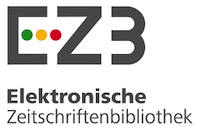Sistema tutorado de aprendizado e nivelação para aspirantes à PMP
##plugins.themes.bootstrap3.article.main##
A certificação Project Management Professional (PMP) permite a uma pessoa desempenhar sua labor e ser reconhecida como diretora profissional de projetos; serve para mostrar aos empregadores, clientes e profissionais numa área, que ela tem o conhecimento, a experiência e as habilidades necessárias para dirigir projetos e conseguir resultados satisfatórios. Este artigo tem como objetivo desenvolver um sistema tutorial de aprendizado para dispositivos móveis que funcione como ferramenta de preparação para tudo aspirante à certificação PMP outorgada pelo Project Management Institute (PMI). Graças às tecnologias da informação e comunicação (TIC), na atualidade existem distintas ferramentas e estratégias de ensino que envolvem o uso dos recursos digitais (M-learning, B-learning, E-learning, etc.) para dinamizar e tornar mais eficientes os processos de ensino-aprendizado. Este trabalho conclui que os sistemas tutorados (ST) facilitam o processo de aprendizado e permitem transformar o modelo educativo tradicional num modelo versátil flexível e didático.
Downloads
##plugins.themes.bootstrap3.article.details##
Aguilar, R., Muñoz, V., González, E. J., Noda, M., Bruno, A., & Moreno, L. (2011). Fuzzy and MultiAgent Instructional Planner for an Intelligent Tutorial System. Applied Soft Computing, 11(2), 2142-2150. doi:10.1016/j.asoc.2010.07.013 DOI: https://doi.org/10.1016/j.asoc.2010.07.013
https://doi.org/10.1016/j.asoc.2010.07.013 DOI: https://doi.org/10.1016/j.asoc.2010.07.013
Corbett, A., & Koedinger, K. (1997). Intelligent Tutoring Systems. In Handbook of Human-Computer Interaction (2nd ed., pp. 2-5). Pittsburgh: Elsevier Science B. V. DOI: https://doi.org/10.1016/B978-044481862-1.50103-5
https://doi.org/10.1016/B978-044481862-1/50103-5 DOI: https://doi.org/10.1016/B978-044481862-1/50103-5
Ferreira, A., & Atkinson, J. (2009). Designing a feedback component of an intelligent tutoring system for foreign language. Knowledge-Based Systems, 22(7), 496-501. doi:10.1016/j.knosys.2008.10.012 DOI: https://doi.org/10.1016/j.knosys.2008.10.012
https://doi.org/10.1016/j.knosys.2008.10.012 DOI: https://doi.org/10.1016/j.knosys.2008.10.012
Kalhoro, Q. (2010). M - Learning an innovative advancement of ICT in education. 4th International Conference on Distance Learning and Education (ICDLE), pp 148-151.San Juan, PR.: IEEE. doi:10.1109/ICDLE.2010.5606017 DOI: https://doi.org/10.1109/ICDLE.2010.5606017
https://doi.org/10.1109/ICDLE.2010.5606017 DOI: https://doi.org/10.1109/ICDLE.2010.5606017
Kitchenham, B. (2004). Procedures for Performing Systematic Reviews. Keele: Keele University Technical Report TR/SE-0401.
Murray, T. (2003). An overview of intelligent tutoring system authoring tools : Updated Analysis of the State of the Art. In Authoring Tools for Advanced Technology Learning Environments (pp. 493-546). Springer Netherlands. doi 10.1007/978-94-017-0819-7_17 DOI: https://doi.org/10.1007/978-94-017-0819-7_17
https://doi.org/10.1007/978-94-017-0819-7_17 DOI: https://doi.org/10.1007/978-94-017-0819-7_17
PMI. (2012). Manual del PMP. Pennsylvania: Project Management Institute. Retrieved from http://www.pmi.org/~/media/PDF/Certifications/ManualPMP_201204.ashx
Ramesh, V., & Rao, N. (2012). Tutoring and Expert Modules of Intelligent Tutoring Systems. In IEEE Fourth International Conference on Technology for Education (pp. 251-252), Hyderabad: IEEE. Doi 10.1109/T4E.2012.52 DOI: https://doi.org/10.1109/T4E.2012.52
https://doi.org/10.1109/T4E.2012.52 DOI: https://doi.org/10.1109/T4E.2012.52
Staples, M., & Niazi, M. (2007). Experiences using systematic review guidelines. Journal of Systems and Software, 80(9), 1425-1437. DOI: https://doi.org/10.1016/j.jss.2006.09.046
https://doi.org/10.1016/j.jss.2006.09.046 DOI: https://doi.org/10.1016/j.jss.2006.09.046
Xerte. (2015). ¿Qué es xerte?. Retrieved August 31, 2015, from http://xerte.org.uk/index.php?lang=es&Itemid=642



































